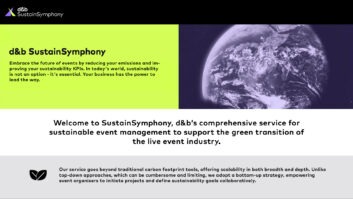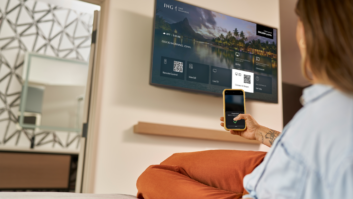
With businesses around the world having to adapt to a new normal, Ben Gautrey, managing director at Great Place to Work UK, offers some sage advice on how employers and employees can make the most of their current, unfamiliar working conditions…
Tell us a bit about who you are and what you do?
I am the managing director at Great Place to Work UK and a passionate believer in the power of people.
What is Great Place to Work UK?
We help organisations cultivate and gain recognition for exceptional, high performing workplaces where employees feel trusted, listened to and valued. By supporting organisations with powerful insights, we help maximise and drive a consistent great experience for all employees. We apply data and insights from approximately 10,000 organisations across the world via our 60 national offices to benchmark the employee experience and advise employers on how to continuously improve and cultivate trust.
How does it work?
We measure organisational culture through two lenses. Firstly, our Trust Index employee survey consists of 60 core statements giving deep insight into the employee experience and highlighting the critical areas that help to proactively drive engagement, wellbeing and productivity. Our second lens is assessing the employee value proposition that the organisation has in place through its people policies and practices. For instance, we look at how an organisation inspires its people, we examine development pathways and the hiring process and look at communication, amongst many other things. By leveraging our two diagnostics, they are able to easily compare against external benchmarks to ascertain organisational strengths to keep leveraging and key priority areas necessitating action.
Based on the outcome of these assessments, organisations are able to be certified as a Great Place to Work and subsequently some are able to earn a spot on the prestigious national, European and global Best Workplaces ranking.
Presumably Great Place to Work UK’s insights into productivity and good working practices are vital at a time when people are having to work in such unfamiliar conditions?
The immense and wide-ranging impact of the coronavirus crisis has been incontestably felt across British businesses. Organisations have had to adjust, adapt and react quickly in countless ways due to the demands and nature of their work and spread of their employees. However, what we have witnessed at Great Place to Work UK is that the UK’s Best Workplaces have continued to place their people at the centre of their strategy and cultivated greater levels of trust through leadership support focused on care and safety, increased transparency and improved connectedness. Wellbeing has come to the fore and organisations must support their employees with strong psychological, emotional, financial support wherever possible and encourage employees to remain physically active.
Some of my recommendations with regards to ensuring productivity would be for all of us to try our best in maintaining a healthy balance by sticking to a disciplined routine with scheduled breaks as the lines between work and rest can easily become blurred. I would also urge organisations and people to make time to focus on learning and development: learning a new skill is great for keeping our neural pathways active and reducing stress. The pandemic is testing everyone’s psychological resilience. I would also strongly advise colleagues to stay connected more than ever and show patience, compassion and understanding.
Everyone is dealing with this situation differently, whether they have caring responsibilities, are separated from loved ones or finding it hard to stay focused. It is easy to point the finger and blame others in a crisis but the best managers ensure there is heightened connectivity within their teams, that everyone’s voice is heard and that teams and individuals prioritise what is most important.
Whilst it is undeniable that the pandemic has shaken the economy, what is also irrefutable is that organisations that care and look after their people are the ones who benefit from a workforce who care and look after their organisations and deliver results.
What advice would you give to people who are not used to working from home? How can they get the best out of themselves and their staff during these times?
We have always supported flexible working if possible. You may have already noticed that some team members are more productive in the morning, while others get more done after lunch. This is especially true when working remotely. In fact, many people are most productive outside the standard 9-to-5 workday hours. With many employees juggling caring and working, they will appreciate employers trusting them to manage their time and workload effectively. They’ll also enjoy the peace of mind of knowing that they can balance both their work and home demands.
Working from home will naturally make some employees go stir crazy. Understandably, overall anxiety is also currently at a high for many people. Throw in the fact that work locations naturally encourage a certain amount of walking (such as to lunch, meetings and co-workers’ settings) and you can see how the current shift to remote work could negatively impact employee health and wellness.
Encourage employees to make time for their health. Simply taking a walk can help employees feel healthier and happier. You might also suggest they build time into their schedules for a fitness class or workout during their day. Helping employees prioritise their own health and wellness will make them feel better, stay healthier and be able to keep going during the crisis.
What are some of your personal tips for working from home/remote working?
I have a two year old daughter so the last 10 weeks have been a challenge, as my wife and I have tried to balance home and work responsibilities. We have a weekly timetable so that we know when we will be primary carer and when we can devote time to work. We have adopted a language club at Great Place to Work via Duolingo and have colleagues learning various languages from Welsh to Vietnamese. I also stick to my to do list that I create at the end of every day to help me prioritise and focus. Finally, I start every day with a walk around Victoria Park with my daughter to try and detox and focus on my immediate surroundings. One of my colleagues emphasised the importance to try and stay positive with an example being that we can’t remedy the situation as individuals but by staying home we are helping others and playing a significant part.
What are some of the key things that you have learned about creating great workplaces during your time with the company?
There are some key commonalities in great workplaces. The central tenet is high trust that exists between leaders, employees and colleagues. The Best Workplaces all experience a clear and coherent strategy and direction that is repeatedly communicated and shared and that employees understand, support and are able to regularly feedback on.
A great place to work creates a consistently great experience for all employees and champions diversity and provides high inclusion. Employee engagement is the silver bullet within the workplace, as employers want a workforce that is motivated, ready to go the extra mile, displays strong pride and advocacy and high wellbeing. What I have been fortunate to witness is that organisations that are authentic, communicative, inclusive and supportive are ones that outperform their peers when it comes to the bottom line.
We are all different and experiencing the pandemic in very different ways, but from my own perspective I have been grateful to spend more quality time with my daughter and wife. Having spoken to friends, they expressed the same sentiments, although they stressed that they have never felt so tired.
Many organisations had a flexible working policy prior to lockdown but the future of work for many will have changed immeasurably due to the enforced digital transformation. Employers who perhaps were against allowing employees to work from home will have seen increased productivity levels and appreciation that through digital platforms, it is easy to get people on a call and widely share and disperse key information quickly.
Finally if my hometown is any indication, more people are devoting time to exercise which is a huge positive, as wellbeing is fundamental to a productive employee. Whilst wellbeing is more than just exercise, the fact that we as a nation are finding time to keep fit is encouraging during what has been a terrible global humanitarian crisis.







